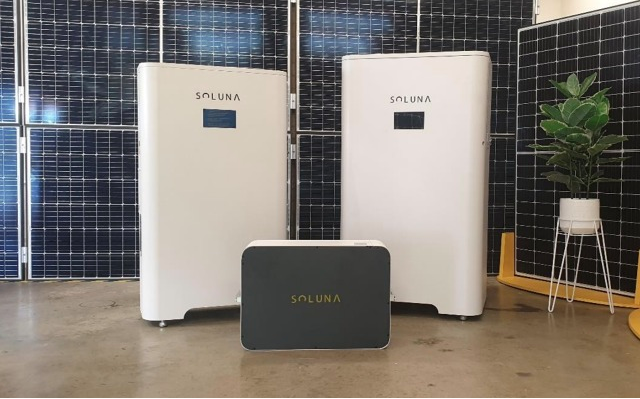A newcomer to Australia’s vibrant battery storage market, Soluna Australia has achieved accreditation for the full range of its home battery storage devices with the Clean Energy Council (CEC). As a key industry standard, the CEC approval confirms to national power grid operators that Soluna products meet all relevant Australian and international standards and are safe to install across the country.
Soluna – a joint venture of Lithium Australia, an ASX-listed company which aims to close the loop on the energy-metal cycle, and Chinese battery manufacturer DLG Energy – announced its entry into the Australian market in December last year. In addition to its battery offer, the joint venture unveiled plans to establish local battery recycling through Lithium Australia’s 90%-owned Envirostream.
With the CEC approval secured, Soluna batteries are now eligible to receive small-scale technology certificates (STCs) under the Small-scale Renewable Energy Scheme (SRES) and for other incentives under state government programs. Specifically, this applies to three Soluna Power Bank residential battery systems that have been added to the CEC list, including the Soluna S12 EU-A50 (11.52 kWh(nom)), the Soluna S4 EU-A36 (3.84 kWh), and the Soluna S8 EU-A50 (7.68 kWh).
“Gaining CEC approval for all the products it markets is a great achievement for Soluna and opens the door for sales of its high-quality, flexible product range to those wishing to save on their energy bills,” said Lithium Australia managing director Adrian Griffin.
Soluna’s Power Bank systems, which include lithium-ion battery storage, a hybrid inverter and an advanced battery management system, will be soon available for installation country-wide, Lithium Australia announced on Tuesday. It also confirmed additional stock has been ordered with delivery expected in early July.
Battery recycling plans
Referring to Soluna as an integral part of its circular economy plan, Lithium Australia aims to vertically integrated lithium extraction, processing and recycling. The company itself has already patented processes to extract lithium from mine waste, while its another venture, 100%-owned subsidiary VSPC in Brisbane, produces high-grade cathode powders, which it supplies to DLG.
“Lithium Australia’s investment in Soluna complements its other business units; together, these comprise a practical circular economy for battery products, ranging from a reduction of waste in the mining phase through more efficient battery production to battery sales via Soluna and, ultimately, the recycling of spent batteries through Envirostream Australia,” Griffin said.
Touted as Australia’s only facility for shredding li-ion batteries, Envirostream joined forces with Lithium Australia last year in a bid to integrate their processes. Envirostream’s capabilities to shred spent batteries and generate a powder containing the critical battery minerals ready for refining were combined with Lithium Australia’s ability to create a flowsheet to process these powders to liberate the nickel, cobalt, manganese and lithium chemicals required for battery cathodes. The Victorian recycler is also working with Korean battery maker LG Chem.
Finally, Soluna Australia has also voice interest in creating innovative energy storage solutions for remote-site and mining applications in Australia and announced plans to evaluate the feasibility of manufacturing battery packs locally. In the mining space, the company has agreed to develop a solar and battery storage facility for rare earth miner Northern Minerals at its Browns Range mining camp about 1,900km northeast of Perth in WA.
This content is protected by copyright and may not be reused. If you want to cooperate with us and would like to reuse some of our content, please contact: editors@pv-magazine.com.









By submitting this form you agree to pv magazine using your data for the purposes of publishing your comment.
Your personal data will only be disclosed or otherwise transmitted to third parties for the purposes of spam filtering or if this is necessary for technical maintenance of the website. Any other transfer to third parties will not take place unless this is justified on the basis of applicable data protection regulations or if pv magazine is legally obliged to do so.
You may revoke this consent at any time with effect for the future, in which case your personal data will be deleted immediately. Otherwise, your data will be deleted if pv magazine has processed your request or the purpose of data storage is fulfilled.
Further information on data privacy can be found in our Data Protection Policy.